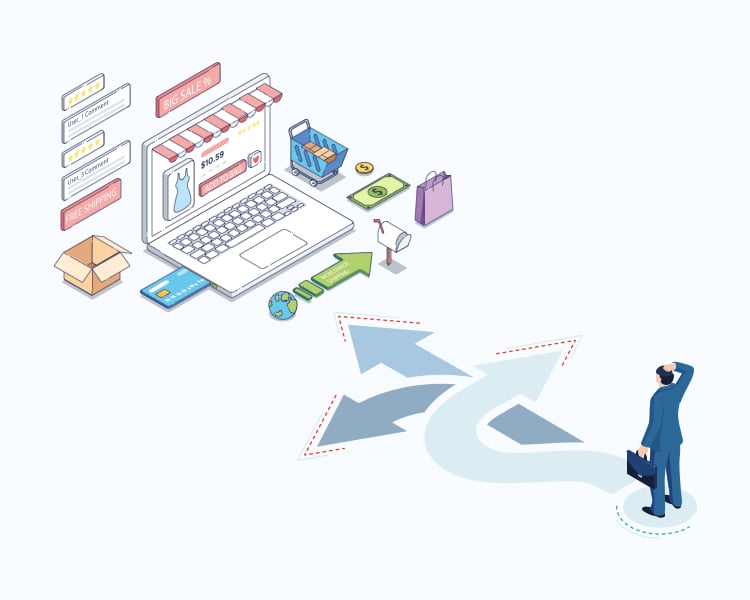No business rates? Check. An ever-growing target market? Check. Potentially easier insurance obligations? Check as well.
What’s not to like about a start-up?
Suffice to say, it’s a little more complex than that. While start-up e-commerce companies have the world as their oyster, competition is fierce.
Today’s article isn’t about the highly backed tech start-ups with millions of pounds at their disposal. Instead, it’s about showing how SMEs can capitalise on e-commerce from the outset.
Let’s now take a look at some key tips.
Think about your platform carefully
Nowadays, you’re almost spoilt for choice. However, while some fantastic e-commerce platforms are out there, not all of them will be suitable for your start-up.
Shopify is a popular choice for SMEs, as it’s user-friendly, has low initial set-up costs, and comes with a wide range of features (such as built-in SEO and marketing tools). However, for some businesses, it’s just not going to cut it. It might not provide as many customization options as they need, while for others, it might be about the fact that so many features need to be purchased as add-ons.
In short, try and find a suitable platform for the products you aim to sell. It’s not necessarily about choosing the most popular platform at the time of your Google research.
Start small and scale up
Many start-ups make the mistake of biting off more than they can chew from the outset. They try and sell everything to everyone and do neither particularly well.
A better approach is to focus on a niche market and then scale up from there. Not only will this make it easier to target your marketing efforts, but you’ll also be able to build up a loyal customer base more efficiently.
Remember, there are more than enough potential customers on the internet to make most small niches more than worthwhile.
Don’t forget about the little things
When you’re starting out, it’s easy to get caught up in the big-picture stuff (like your e-commerce platform or product range). However, it’s important to remember the little things too.
For example, have you thought about your delivery options? What about your returns policy? These might seem like small details, but they can make a big difference to your customer’s experience – and that’s what counts.
Be aware of spiraling marketing costs
Yes, you can target a huge number of customers via e-commerce, but it can come at a cost. This is especially true if you opt for paid search advertising; the CPCs some industries are subjected to are mind-boggling at best. For most SMEs, it’s just not possible to compete.
Bearing this in mind, always keep one eye on your numbers. Make sure that your marketing spend drives enough sales to make it worthwhile, and if it isn’t, don’t be afraid to pull the plug and turn to more traditional forms of marketing that are still effective in the online world.












